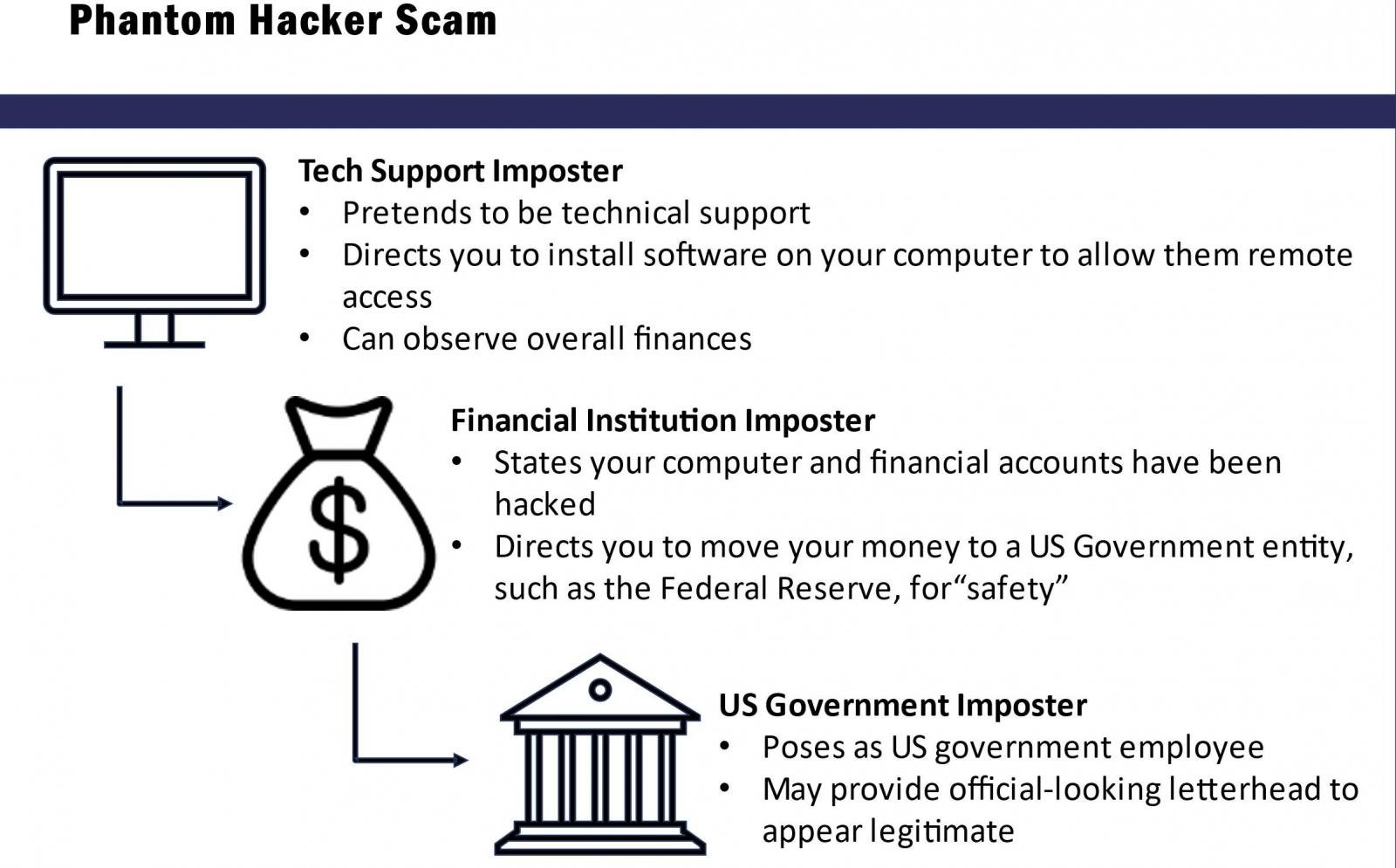The FBI issued a public service announcement warning of a significant increase in ‘phantom hacker’ scams targeting senior citizens across the United States.
“This Phantom Hacker scam is an evolution of more general tech support scams, layering imposter tech support, financial institution, and government personas to enhance the trust victims place in the scammers and identify the most lucrative accounts to target,” the FBI said.
“Victims often suffer the loss of entire banking, savings, retirement, or investment accounts under the guise of ‘protecting’ their assets.”
In such scams, multiple fraudsters masquerading as bank representatives are contacting unsuspecting victims, falsely alleging that their accounts have fallen victim to hacking attempts.
Subsequently, these scammers employ various tactics to persuade their targets to grant access to their banking accounts, assessing whether they possess significant funds warranting further pursuit.
Should the victims’ account balance make them valuable targets, they receive instructions to await a call from their bank—a second scammer involved in the scheme—advising them to transfer their funds to what is claimed to be a ‘secure’ account under the control of the fraudsters.
In instances where targets prove resistant to manipulation, a third contact is made by an imposter posing as a representative of the U.S. government who makes a final attempt to persuade the victims, urging them to safeguard their finances by moving their funds to a ‘safe’ account.

“Between January and June 2023, 19,000 complaints related to tech support scams were submitted to the FBI Internet Crime Complaint Center (IC3), with estimated victim losses of over $542 million,” the FBI added.
“Almost 50% of the victims reported to IC3 were over 60 years-old, comprising 66% of the total losses. As of August 2023, losses have already exceeded those in 2022 by 40%.”
The FBI cautions individuals vulnerable to potential scams against engaging with unsolicited pop-ups, links sent via text messages, or email attachments.
Additionally, they should refrain from contacting the telephone number provided in any pop-up, text, or email, and never download software at the behest of an unfamiliar individual who has approached them. As an additional precaution, avoid granting control of your computer to any unknown individual.
The FBI also emphasized that the U.S. government will never demand cryptocurrency, gift/prepaid cards, or money through wire transfers to foreign accounts.
Those who have been targeted in such scams are urged to report the incidents by filing a complaint with the Internet Crime Complaint Center (IC3).
Complaints should contain details such as the identity of the individual or company who made contact, the communication method, and the recipient’s name and address to which funds were sent.
In a November advisory, law enforcement cautioned of scammers impersonating financial institutions’ refund payment portals to deceive victims, particularly among the elderly demographic, by taking advantage of the perceived credibility of such institutions.
